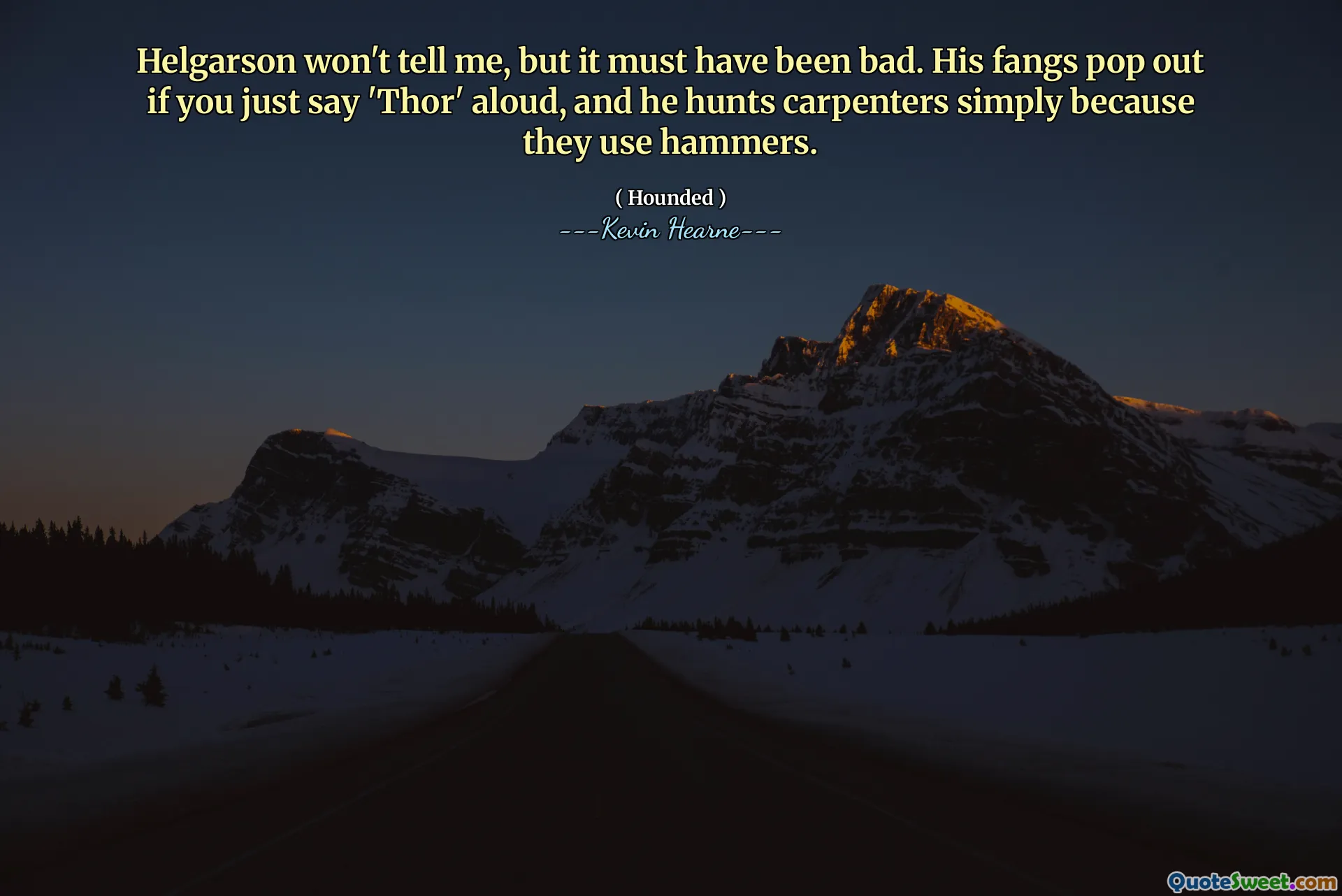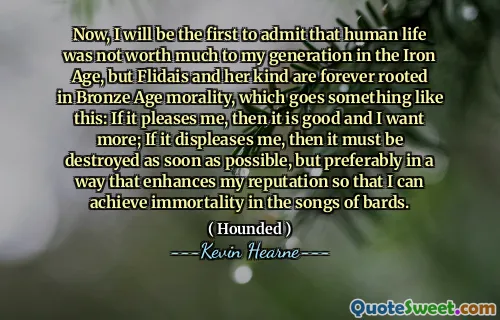
Helgarson won't tell me, but it must have been bad. His fangs pop out if you just say 'Thor' aloud, and he hunts carpenters simply because they use hammers.
This quote paints a vivid picture of a mysterious and potentially dangerous character named Helgarson, whose reactions are triggered by the mention of 'Thor' and by the presence of carpenters with hammers. The imagery invites reflection on the ways in which ancient mythological figures or symbols can evoke strong, instinctive responses, possibly tied to fear or reverence. The fangs popping out upon uttering 'Thor' might suggest a creature or persona that embodies or is connected to Norse mythology's thunder god, symbolizing power and primal instincts. Additionally, the description of Helgarson hunting carpenters because they use hammers hints at a deep-seated conflict or obsession, perhaps rooted in symbolism—hammers being tools of creation, craftsmanship, and building, but also destruction and violence. The contrasting elements—mythology, daily craftsmen, and fierce reactions—generate a sense of tension and mystery. It makes one wonder about the underlying story, why Helgarson reacts so strongly, and what his motives are. The quote emphasizes themes of secrecy, primal protections of identity or knowledge, and the complex relationships between cultural symbols and personal or mythic monsters. It evokes a world where myth and reality intertwine, reminding us that sometimes archetypes or ancient symbols can reveal fears kept hidden beneath surface appearances, much like how familiar objects or figures could unexpectedly symbolize something dangerous or sacred. This layered imagery invites the reader to consider how myths influence our perception of others and shape legends that blur the line between humanity and the supernatural.







